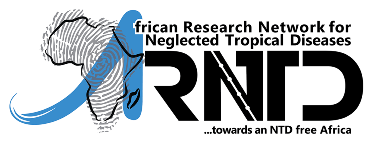Research Focus Groups
The ARNTD has created four disciplinary expert groups (research focus areas) which include basic research, operational research, social science and implementation research, and co-infection studies. This holistic approach to promoting research allows for greater impact downstream through the translation of findings in the laboratory to tangible products or interventions in the field or among communities.
The need for field applicable, point-of-care tests are required which are reliable and can be used for early detection has been identified as a research gap particularly for diseases such as Buruli ulcer, Leishmaniasis, Trypanosomiasis, and Yaws. Multiplex tests that are less invasive and can detect several infections in one test are another requirement. In addition, simple biomarkers need to be identified for disease monitoring. The need to identify new second line treatments or so-called “fall-back” drugs for various NTDs has been raised by members.
Community-centred drug and intervention delivery mechanisms to meet elimination targets and increased access to interventions for communities have been identified as areas in critical need of operational research in NTD control, including modelling and cost-effectiveness studies. Mapping of disease distribution to identify possible transmission hotspots (particularly at local level) is also needed.
This area of research includes disciplines such as: anthropology, sociology, economics, geography, policy science, demography, communication, behavioural and social psychology, international relations and implementation science. There is a pressing need to better understand how socioeconomic conditions (education, income, and ownership), culture (beliefs and perceptions) and local health systems (administration or operational, health care, health financing, community implication) impact on NTD transmission and the interventions aimed at controlling NTDs. Other research gaps include communication between researchers and implementers, international collaboration and community participation.
The co-occurrence of more than one infection involving an NTD and another NTD, or an NTD and any other infection has been identified as an important issue requiring focussed research. The One Health concept over the past decade has helped promote the recognition that the health of humans is connected to the health of animals and the need for more research to address animal-human interaction in disease transmission and control. Questions on the immune response during co-infections, the mechanisms which drive these responses and implications for control abound. Drug responses and treatment outcomes in co-infected patients (e.g. the impact of Praziquantel treatment on HIV sero-conversion) as well as disease-disease interactions need to be investigated; particularly how NTDs become precursors for other disease or disease conditions e.g. nutritional disorders including anaemia.

